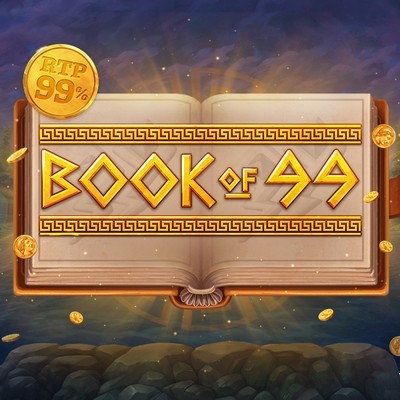Parimatch en Perú
Parimatch es una especie de gigante del juego en gran parte de Europa del Este. Sin embargo, su presencia online les ha permitido expandirse aún más. Empezaron como especialistas en apuestas deportivas, pero ahora cuentan con un gran casino y un casino en vivo.
| Sitio oficial | jesuscaritas.info |
| Año de publicación | 1994 |
| Número de partidos | Bonificación de bienvenida |
| Versión móvil | Android, iPad, iPhone, Windows, Mac |
| Tipo de juegos | Máquinas tragaperras, juegos de mesa, póquer de vídeo, loterías, juegos de casino en vivo |
| Bonificación mínima para grandes apostantes | 100 EUR |
Al ofrecer un paquete de juego más completo, Parimatch espera convertirse en una ventanilla única para todo tipo de jugadores. ¿Cumple su casino los requisitos? Esa es la pregunta que responderemos en esta reseña del casino Parimatch.
Los mejores bonos de casino online: una guía de grandes ofertas
Como todos los sitios de apuestas deportivas y casinos en línea, los bonos del casino Parimatch son reales y están disponibles para los usuarios. Los nuevos jugadores reciben un bono de registro en Parimatch Casino por registrarse. Se les da un bono del 100% en su primer depósito. Sin embargo, los paquetes de bonos difieren dependiendo del país del nuevo usuario.
Los clientes también reciben otras bonificaciones como un 25% extra por cada depósito. Sin embargo, esta bonificación tiene condiciones y los usuarios deben realizar un depósito mínimo de 10 euros para recibirla. A la hora de depositar dinero en el casino, hay que hacerlo utilizando el código especial 25. Una vez que el cliente haya cumplido estos requisitos, tendrá que esperar un poco para que se le abone el importe del bono.
Revisión de proveedores y juegos de casino online: tu camino hacia una emoción inolvidable
Las tragaperras del casino Parimatch abundan en el sitio web, y algunas de las que se ofrecen tienen botes progresivos en los que los jugadores pueden ganar desde miles hasta millones. Los jugadores pueden disfrutar de las tragaperras del casino Parimatch accediendo al sitio web y registrando sus cuentas. Los jugadores pueden disfrutar de una gran variedad de máquinas tragaperras de casino online y recibir ganancias, pagos y bonos de registro garantizados. Algunas de las mejores tragaperras son Sun of Egypt, Sweet Bonanza, Supreme Hot, Hot Fruits 20 y muchas más. Sólo unas pocas tragaperras tienen bote, como Tiger Jungle, Magic Spinners, Glowing Fruits y muchas otras.
En el casino online encontrarás muchos proveedores de software como Evolution Gaming, Authentic Gaming, Up games, NetEnt, Amatic, Betsoft, Microgaming y muchos más. Parimatch le permite filtrar los proveedores que busca, ya que los jugadores intentan ser exigentes a la hora de elegir los proveedores que prefieren. Los filtros rápidos ayudan a los jugadores a seleccionar juegos específicos con un solo clic. Se pueden filtrar los juegos en función de su temática y destacar los juegos con bote con un solo clic. El software facilita a los jugadores la búsqueda de juegos con promociones actuales y las últimas recomendaciones en el sitio web.
Métodos de pago convenientes y soporte técnico de calidad en los casinos en línea
Parimatch Casino acepta varios métodos de pago, incluyendo tarjetas de débito/crédito, monederos electrónicos y criptomonedas.
No todos los métodos de pago mencionados a continuación están disponibles tanto para retiros como para depósitos. Compruebe la lista disponible para su ubicación en la pestaña de pagos del casino o póngase en contacto con el servicio de atención al cliente.
- Visa
- MasterCard
- Maestro
- Neosurf
- Neteller
- Skrill
- MiFinity
- Ecopayz
- Mucho mejor
- Bitcoins
- Litecoin
- Tether
- Dogecoin
- Ethereum
- Transferencia bancaria
El importe mínimo de depósito en Parimatch Casino es de 10 euros para Visa, MasterCard, Maestro y Ecopayz y de 20 euros para MuchBetter, Neosurf, Neteller y Skrill. Los depósitos mínimos en criptodivisas también varían.
Los importes mínimos de retirada en Parimatch Casino son de 10 € para MiFinity y Ecopayz, 20 € para MuchBetter, Neosurf, Neteller y Skrill, y 400 € para transferencias bancarias. Los importes mínimos de retirada para criptomonedas también varían.
Atención al cliente y contactos
Algunas reseñas de Parimatch Casino no comprueban la calidad del servicio de atención al cliente, pero eso es lo que hicimos nosotros. El servicio de atención al cliente está disponible en inglés, aunque no suele ser la lengua materna del personal. Esto no supone ningún problema importante, pero cabe esperar algunos errores gramaticales en las respuestas. Por lo general, el personal de asistencia también responde con bastante brevedad, pero lo positivo es que suelen hacerlo con rapidez.
El chat en línea está disponible 24 horas al día, 7 días a la semana, y los clientes pueden acceder a él haciendo clic en el icono amarillo de la burbuja de diálogo en la esquina inferior derecha de la pantalla. También puede enviar un correo electrónico o llamar a cualquiera de los números que aparecen en la página “Soporte”.
FAQ
¿Es un casino legítimo y seguro?
Sí, Parimatch es una empresa muy segura y digna de confianza que existe desde hace más de dos décadas.
¿Qué juegos están disponibles en el casino en línea?
Puedes jugar a máquinas tragaperras, baccarat, ruleta, póquer, blackjack y mucho más.
¿Puedo jugar a juegos BTC en este casino online?
Sí, Parimatch se complace en que los clientes puedan depositar y jugar utilizando bitcoins.
¿Dónde puedo encontrar el calendario de bonos del casino?
Hay una promoción especial de Parimatch para cada día, que encontrarás en el calendario de bonos del casino. Puedes encontrar el enlace actual seleccionando “promoción” en el menú principal y bajando hasta el casino. Alternativamente, si está utilizando la vista clásica del casino, haga clic en “bonos” en la esquina superior izquierda de la pantalla.
¿Ofrece el casino bonos sin depósito?
Parimatch ofrece muchas promociones, pero ninguna de ellas ofrece actualmente un bono sin depósito.
¿Cómo puedo hacer que mi cuenta sea más segura?
Asegúrate de elegir una contraseña segura (por ejemplo, que no contenga tu nombre) y no la compartas con nadie. También se recomienda utilizar la autenticación de dos factores.







